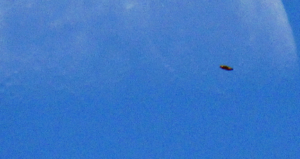Advances in astronomy and science make it more clear by the day that, unexpectedly, the math is on the side of aliens. As late as the 1990s, scientists weren’t sure that there were planets anywhere else in our galaxy or in the universe beyond, but advances like the Kepler Space Telescope have led astronomers to believe now that nearly every star is like our sun, possessing so-called “exo-planets,” and that, by extension, there are many habitable planets with conditions to support life as we recognize it.
Recent estimates imagine that there are one sextillion — a billion trillions — of habitable planets in the universe. Sure, the odds of life are long, but does it really seem like humans and intelligent life are a one-in-a-sextillion chance? That wonder “Are we alone?” is one of humanity’s most profound questions, alongside “Is there a god?” and “what happens after death?” And as nearly every day brings additional evidence we’re likely not alone, it sparks the human mind to wonder if and how we might someday discover, definitively, that we’re not. I spent the last two years digging into this science as part of my research for my new book, UFO: The Inside Story of the US Government’s Search for Alien Life Here—and Out There, and came to realize that we’re living through a startling transformation right now of our understanding of the universe and that the possibility of life and intelligent life “out there” is moving quickly toward a probability.
Is OpenAI melting down because it secretly created something really scary?
It would be one of the most startling transformations of humanity’s understanding of itself and our place in the universe — a discovery with profound implications for everything from religion to science to politics, an answer to one of the most basic and fundamental questions of our existence.
Continue here: The Rolling Stone
Ask me anything
Explore related questions





